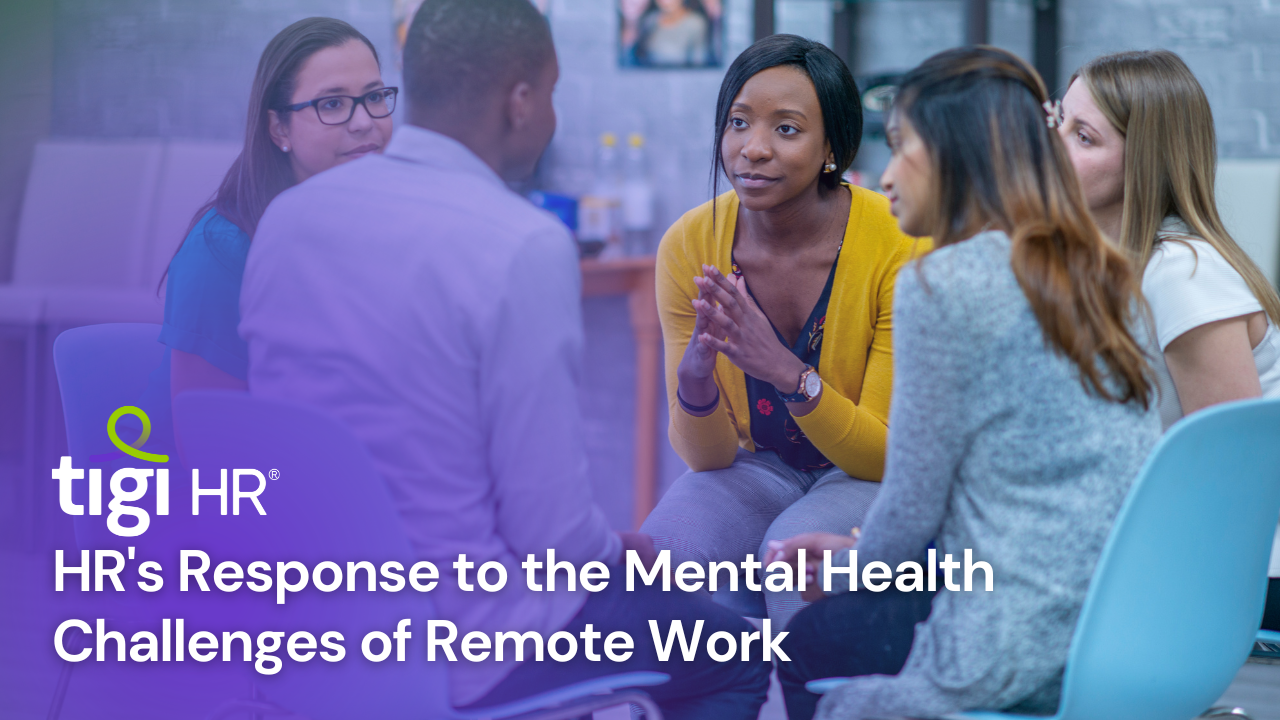In the wake of the COVID-19 pandemic, remote work has become the new norm for countless employees worldwide. While this shift offers flexibility and convenience, it also brings forth a unique set of challenges, particularly in terms of mental health. As organizations adapt to this evolving landscape, Human Resources (HR) departments play a crucial role in ensuring the well-being of their remote workforce. In this article, we explore HR’s response to the mental health challenges of remote work and provide practical insights to foster a healthy and productive remote work environment.
Communication Is Key
Effective communication is the cornerstone of HR’s response to remote work mental health challenges. Frequent check-ins, virtual team meetings, and open channels for feedback are essential. HR can encourage managers to maintain regular one-on-one meetings with team members to discuss workload, concerns, and overall well-being. Transparency and accessibility in communication create a sense of belonging and help employees feel supported.
Promote Work-Life Balance
One common pitfall of remote work is the blurring of boundaries between professional and personal life. HR can advocate for and support employees in maintaining a healthy work-life balance. Encouraging breaks, setting clear expectations for working hours, and discouraging excessive overtime can help prevent burnout.
Mental Health Resources
Providing access to mental health resources is paramount. HR can collaborate with healthcare providers or Employee Assistance Programs (EAPs) to offer counseling and support services. Promote awareness of these resources and destigmatize seeking help for mental health issues. Offering online wellness programs, stress management workshops, or mindfulness sessions can also be effective.
Flexible Schedules
Recognizing that every employee’s situation is unique, HR can champion flexible work schedules. This includes accommodating those with caregiving responsibilities or individuals in different time zones. A flexible approach to work hours allows employees to manage their work in a way that suits their personal circumstances, reducing stress.
Encourage Social Connections
The isolation of remote work can take a toll on mental health. HR can foster a sense of community through virtual team-building activities, online forums, or chat groups for employees to connect casually. Encouraging social interactions, even if they are virtual, can help combat feelings of loneliness and promote a supportive remote work culture.
Training and Education
HR can develop training programs and resources to help employees and managers recognize signs of mental health issues. Promoting awareness and empathy can lead to early intervention when needed. Additionally, HR should ensure that managers are equipped to handle mental health discussions sensitively and appropriately.
Regular Feedback Surveys
Implementing regular surveys to gauge employee satisfaction, engagement, and well-being can provide invaluable insights. HR can use these surveys to identify trends, areas needing improvement, and the overall effectiveness of mental health initiatives. Data-driven decision-making is crucial in tailoring strategies to address remote work challenges.
Conclusion
HR’s response to the mental health challenges of remote work is an ongoing commitment to the well-being of employees. By prioritizing communication, work-life balance, mental health resources, flexibility, social connections, education, and feedback, HR can create a supportive environment that allows remote workers to thrive. In doing so, organizations can not only enhance the mental health of their employees but also boost overall productivity and satisfaction in the remote work era.
Job seekers must be vigilant in identifying red flags in job descriptions to make informed decisions. Ambiguous language, overlooking inclusivity and diversity, and unrealistic requirements can indicate potential issues with the company or position. A well-crafted job description reflects professionalism and transparency. By recognizing warning signs, applicants can ensure a better match between their skills and employer expectations, leading to a successful job hunt.
Find trusted recruitment agencies : Click here





